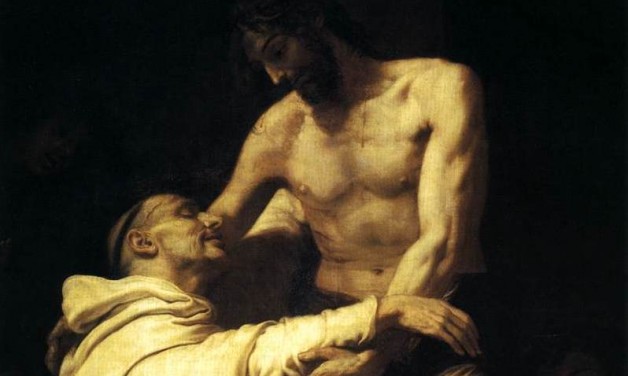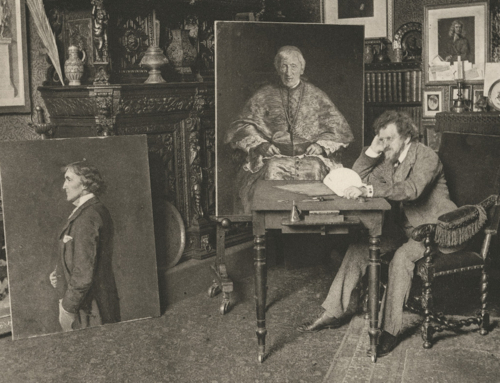St. Bernard of Clairvaux, whom the Church celebrates today, possesses a mighty reputation. Hailed as one of the most influential men in the twelfth century, he resuscitated a struggling new community of monks and transformed them into the great Cistercian Order that boasted several hundred monasteries across Europe after only four decades. His influence didn’t stop there. He counseled lay nobility and healed schisms at the highest levels of the Church hierarchy. His accomplishments are numerous and his title as a Doctor of the Church prevents him from falling into any obscurity within Church history.
What precisely made him such a great leader and advisor? Certainly we can point to his personality or his penetration of theology and the Christian spiritual life. His treatises, On the Love of God and The Steps of Humility and Pride, are only highlights of his contributions to the Church. However, I think that his greatness consists not merely in his illuminating knowledge of the spiritual life, but in his own living out of this knowledge. In TheSteps of Humility and Pride, he writes:
A brother’s misery is more truly felt by a miserable heart. But in order to have a miserable heart because of someone else’s misery, you must first recognize your own so that you may find your neighbor’s mind in your own and know from yourself how to help him.
He was not a great counselor because he saw himself as a man above others who had a higher perspective – he was a man amongst others who simply kept perspective. He knew how to “rejoice with those who rejoice and weep with those who weep”(Rom 12:15) because he himself first rejoiced and wept. He recognized his own need for mercy and forgiveness. Consequently when he saw others suffer, he did not look down upon them from on high. Rather, he suffered with them. His suffering and the recognition of his own misery became a gift.
Without that gift, he would have remained distant from those he served. But with the gift, he could unite himself to them. Understanding their broken hearts prompted him to pray and to exercise mercy towards them. All of this was in imitation of our Savior who experienced the greatest suffering for our sake. He knew our suffering from all eternity but upon the cross He experienced our suffering and had compassion.
Suffering in itself is not a good thing and, thus, isn’t the most advisable of things to seek out; however, Christ’s work on the cross has transformed it. We can see it as a gift insofar as it conforms us to Christ and enables us to suffer with our neighbor. We weep with those who weep and rejoice with those who rejoice. The pain of our own suffering can move us to pray for those who suffer. We know the perseverance, the courage, the hope they need to endure suffering. Because we have been there already ourselves, we can be there with them in prayer. It isn’t the most pleasant of gifts, but when we follow the footsteps of St. Bernard and imitate our Savior, our suffering and misery are transformed into a mighty and powerful gift.
✠
Image: Francisco Ribalta, Christ Embracing St. Bernard







